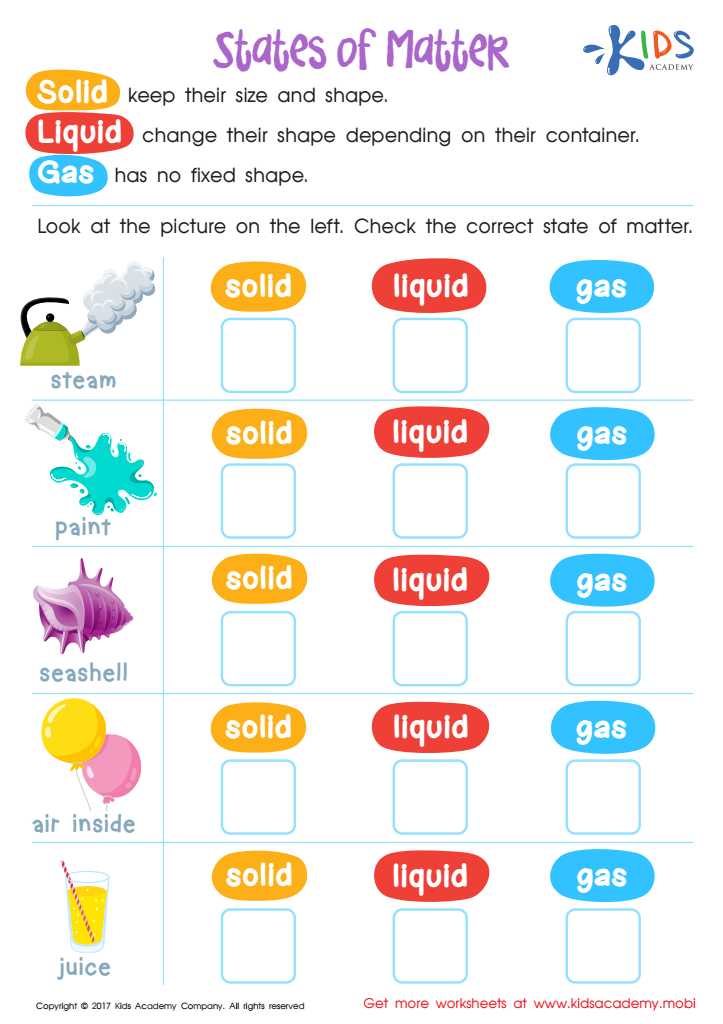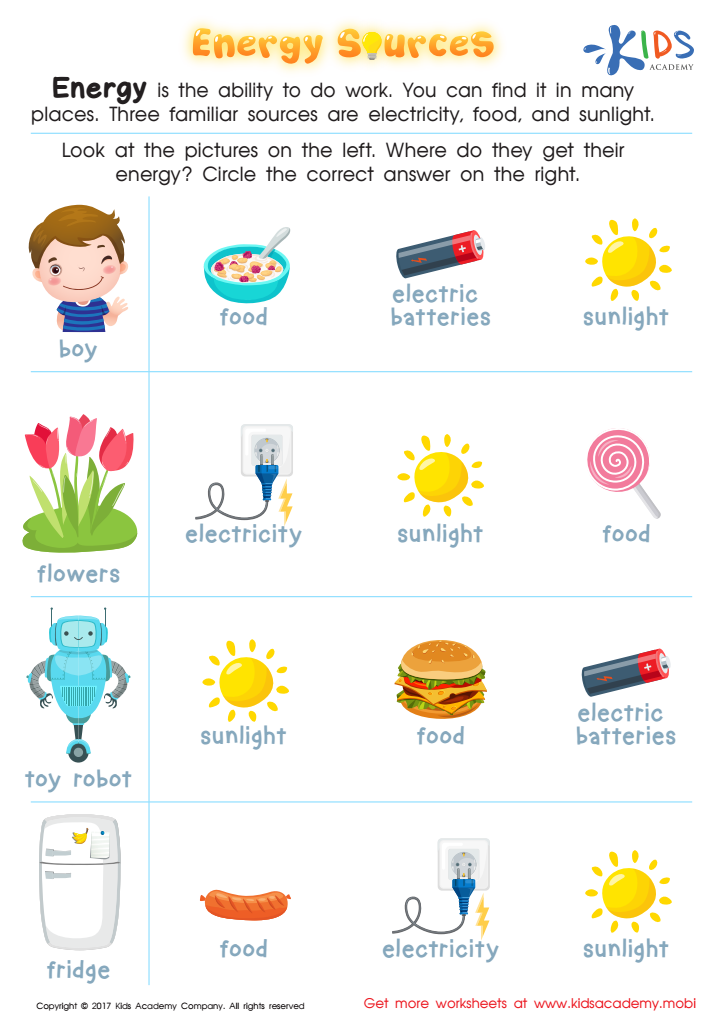Physical Science Worksheets for Ages 3-8
3 filtered results
-
From - To
Discover a world of learning with our engaging Physical Science Worksheets designed for children ages 3-8! These interactive resources help young learners explore essential scientific concepts through fun activities and colorful illustrations. Topics include the basics of matter, properties of materials, simple machines, and more, fostering curiosity about the world around them. Our worksheets are tailored to accommodate various learning styles and abilities, encouraging hands-on exploration and critical thinking. Perfect for home or classroom use, these worksheets make science approachable and enjoyable for young minds. Set the foundation for your child's education in a playful and exciting way today!


Physical Science: States of Matter Worksheet


Sink or Float Printable


Energy Sources Printable
Parents and teachers should care about Physical Science for ages 3-8 because it lays the foundation for critical thinking and understanding of the world. At this early stage, children are naturally curious about their environment, and introducing them to basic concepts of Physical Science can enhance that curiosity into a structured learning experience.
Such education nurtures children's abilities to observe, ask questions, and explore concepts like matter, force, and energy through hands-on activities. By encouraging exploration in a safe way, children develop problem-solving skills and creativity, essential traits for lifelong learning. These scientific principles are not just abstract ideas; they relate to everyday phenomena such as why a ball rolls or why toys float, making learning tangible and relevant.
Moreover, early exposure to science promotes positive attitudes towards learning, crafting inquisitive minds that will be more equipped to tackle complex concepts in later years. As children engage with physical science through play and experimentation, they build teamwork, communication, and perseverance skills, fostering a well-rounded educational foundation. Ultimately, instilling a love for science early on inspires future generations to appreciate and participate in scientific inquiry, essential for personal growth and societal advancement.

 Assign to My Students
Assign to My Students




















